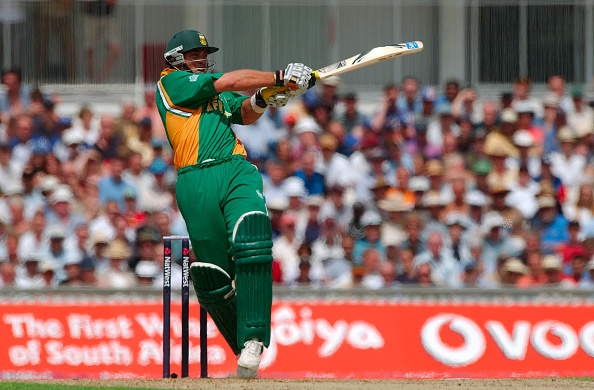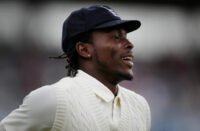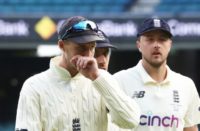Chandika Hathurusingha is not given to tub thumping but his words to Bangladesh’s cricketers, as they stood poised between victory and defeat in the final Test against England last week, proved a galvanising force as they went on to achieve their first ever win over them.
Hathurusingha, a former Sri Lankan Test player and Bangladesh’s coach, delivered his speech when England, chasing 273, were 100-0 at tea on the fourth day. Two hours later they were 164 all out, the last 10 wickets having fallen in 22 overs.
“I challenged the boys to stand up,” said Hathurusingha. “I told them this opportunity to beat England may never come again.”
We have all heard stories of stirring orations that have inspired men and women to conquer in the sporting arena. But can one player’s inspiration be another’s turn-off and is the message always absorbed?
Providing the delivery and choice is good, words can be a potent tool. My personal favourite was allegedly delivered by Jacques Kallis during the halfway break in a one-day international against Australia in Johannesburg in 2006. South Africa had bowled first and conceded an incredible 434 runs from their 50 overs. The dressing-room was silent as the grave – 300 being an incredible score in those days let alone the mountain faced by South Africa.
Sensing tension was not the best preparation for such a mammoth task, Kallis suddenly stood up, clapped his hands together and said: “Right, the bowlers have done their job, now it’s up to the batsmen.” Suddenly, long, stern faces were creased with laughter and South Africa went out with a relaxed sense of purpose and, incredibly, chased the runs down, winning by one wicket with a ball to spare.
Sometimes the chat, usually from the captain or coach, can be brief and mundane. Keith Fletcher, my captain at Essex, was a master tactician but rarely big on rhetoric. When we had messed up our first innings in Championship matches one of his favourites was: “Same order, better batting.”
He certainly got it out as we followed on against Warwickshire at Ilford in 1983 after being dismissed for 114. It worked, too. We made 374 in our second dig, skittled Warwickshire for 119, and won the match. It was no magical incantation, though, and it was delivered again during our match against Nottinghamshire that same season. On that occasion we lost by 10 wickets so inspiration was not guaranteed.
Sometimes the instruction from a skipper can be very precise, though that is not necessarily always a good thing. In 1989, an ‘England XI’ played the Netherlands in two one-day internationals in Amstelveen, near Amsterdam. The team was comprised of the best players from those counties not playing the current round of Championship matches. So, a motley lot, captained by Peter Roebuck.
The games were on jute matting so we couldn’t wear spikes, something that rather hampered our fast bowlers especially as heavy rain had made it extra slippery. In addition, Roebuck’s orders further confused them, especially our Welsh firebrand, Greg Thomas.
“Gregory,” said Roebuck, “I’d like you to start from the far end where I want you to bowl fast outswingers, taking the ball away late from the right-handers from just short of a good length. I’ll give you three slips and a gully and we’ll be waiting.”
“I’d like to be able to do that as well,” chirped Thomas, who’d never deliberately swung a ball in his life. He gave it a try, though, his and all our efforts coming unstuck against Nobby Clarke, Holland’s Barbadian No.4, whose hook-happy innings of 77 helped Netherlands to a score we fell three runs short of.
Afterwards, following a Press conference at which Roebuck spoke, Mickey Stewart, our manager for the trip, told the assembled Press to discount anything Roebuck had said as nonsense, something Thomas no doubt wished he had done earlier. Still, we got it right the next day, winning by 98 runs.
Sometimes the dressing-room chat can be with opponents, though that is not always friendly. During the Bodyline Ashes of 1932/33, Douglas Jardine, England’s captain, took exception to somebody in the Australian side referring to him as a bastard.
When he went to complain after play Vic Richardson, the grandfather of Ian and Greg Chappell, answered his knock on the dressing-room door. With a drollness the patrician Jardine would certainly have seen as insolence, Richardson turned to his team-mates and inquired: “OK, which of you bastards has been calling this bastard a bastard?”
Not all pronouncements are to the team, though woe betide the captain making predictions about opponents in the media. Often, all that does is to inspire the opposition as it did the West Indies following Tony Grieg’s infamous, “I intend to make them grovel,” promise, during the long, hot summer of 1976.
For an England captain to be so bold, let alone one who’d been brought up and schooled in apartheid South Africa, seemed foolhardy. And so it proved when West Indies, gleefully acknowledging how Greig’s words had been the most potent of team talks for them, won the series 3-0.
Occasionally, it is the individual that needs to be stirred to raise his game, as was the case with Keith Boyce when Keith Fletcher tried to inspire him to bat out the draw in Essex’s match against Leicestershire. “I don’t care how you do it, Boycey,” said Fletch at tea, “make sure you see out time.”
Unlike Roebuck’s instructions to Thomas in Holland, Fletcher’s lacked the necessary detail, as revealed by Boyce’s almost immediate return to the dressing-room after the break, stumped Tolchard bowled Balderstone.
“Sorry, boys,” said Boyce. “I thought if I hit the ball over the pavilion it would waste time while they tried to find it.”
There was no ambiguity in Fletcher’s response.
This piece originally featured in The Cricket Paper, November 4 2016
Subscribe to the digital edition of The Cricket Paper here












